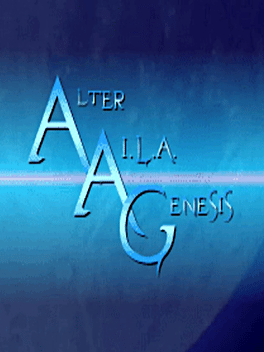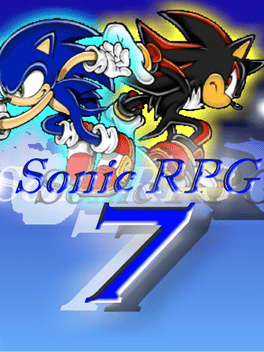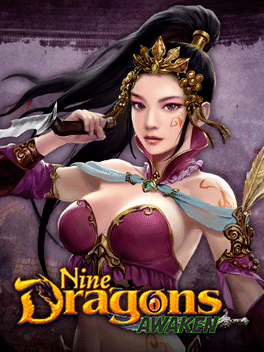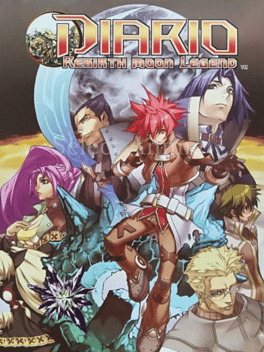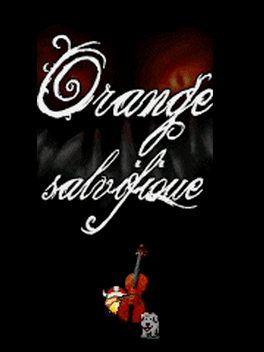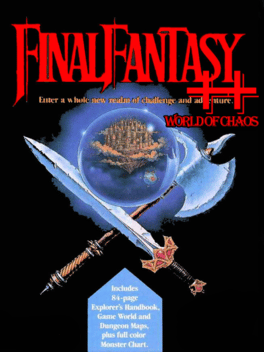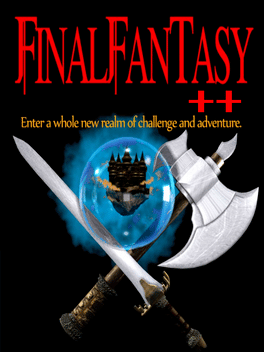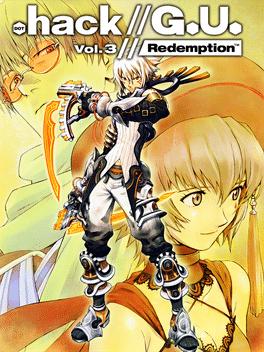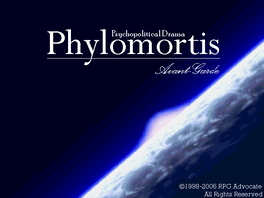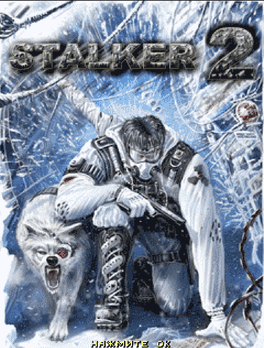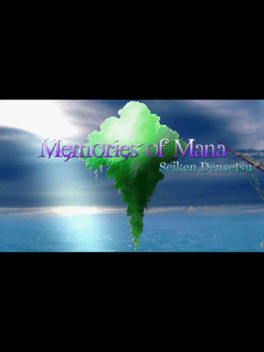New Xbox 360 Games - Page 209
-
Alter A.I.L.A. Genesis
2007
Alter A.I.L.A. Genesis takes place in a post-apocalyptic world. You play the role of a young man known as Leon, who seeks to survive in the harsh environment he is brought into. Exploration is done mainly via a side-scrolling view. In certain areas, an exclamation mark will sometimes appear, indicating the presence of hostiles. Press Z when this happens to initiate battle, or wait to let it pass. Sometimes battle will be unavoidable. When walking, enemy encounters won't occur. The battle system revolves mainly around each character's Abilities, which are a set of commands specific to that character. Abilities require AP and EX to use. AP is gained every time a character takes a turn. -
Sonic RPG: Episode 7
2007
Sonic RPG: Episode 7
2007
A multi-level RPG-style fighting game. It is really hard, but is very rewarding if you beat the opponent in each level - the game contains a movie that runs between the levels. Passwords are issued for each level so that you can skip them the next time you play if you wish. -
9Dragons
2007
9Dragons
2007
star 59Dragons is a free to play MMORPG with fluid martial arts combat, lush environments, and intense PvP. Immerse yourself in a mesmerizing world set in ancient China at the beginning of martial arts chivalry. -
EverQuest: The Buried Sea
2007
The Buried Sea is the thirteenth expansion for the popular MMORPG franchise, EverQuest. -
Orange Salvifique
2007
Orange Salvifique
2007
"Orange Salvifique" is a very particular French interactive film. It is also a creation with a real artistic and intellectual work. In this game, you will follow the journeys of a man with a strange temperament, made more or less crazy by a failed marriage. You will discover his story through the eyes of several characters surrounding him. -
Nicktropolis
2007
Nicktropolis
2007
Nicktropolis was an MMORPG made for Nickelodeon's website in January 30, 2007. It was created to have a world for kids with safe chat features. Nicktropolis was a social MMO where you could create an avatar and customize it, chat with other players, create your own room, and play games. The game would allow you to walk around various Nickelodeon themed environments, where you would play mini-games of whatever intellectual property you would be in at the time. By doing so, you would obtain Nickpoints; the in-game currency. With it, you could buy items for your avatar in Nickname Lane where there would also be shops themed around the various shows. In 2010, it was completely re-branded to The Club, which used a few different assets, but the idea was the same. In 2013, The Club was closed with a few assets remaining. And in 2016, all remaining assets carried over were closed when Nickelodeon removed the option to join as a user on the website. -
Vanguard: Saga of Heroes
2007
star 7.7A massively multiplayer online RPG powered by a heavily modified Unreal engine and produced by former team members of the Everquest franchise. Facing the challenges of a war-torn world, the diverse people here struggle to rebuild their once great civilizations. A fragile alliance has been struck, with the lands set upon by invading forces, the races must band together to survive. In the north, the sprawling green hills of Thestra are plagued by an unstoppable undead menace. To the south, the deserts of Qalia have been besieged by an elemental threat spawned from the depths of the earth and to the east; inhabitants of the tumultuous jungles of Kojan fiercely battle encroaching otherworldly fiends. -
Dungeons & Dragons Online: The Necropolis, Part 2
2007
A quest pack with a series of shadow-themed dungeons for mid level adventurers. -
Final Fantasy ++ World of Chaos
2007
A semi-sequel of the author’s previous hack, Final Fantasy ++. It includes adaptations of various dungeons from FFs 3, 4, 5, & 6, SaGa 2, and Dragon Quest 5, along with a couple of new ones. -
Final Fantasy ++
2007
Final Fantasy ++
2007
Final Fantasy ++ (or Final Fantasy Double-Plus, or Final Fantasy Plus Plus) is a “re-imagining” of the very first Final Fantasy game. -
.Hack//G.U. Vol. 3: Redemption
2007
star 7.Hack//G.U. Vol. 3: Redemption is the third entry in the .hack//G.U. series containing: Vol. 1: Rebirth, .hack//G.U. Vol. 2: Reminisce and .hack//G.U. Vol. 3: Redemption. As in the previous .hack games, .hack//G.U. simulates a massively multiplayer online role-playing game as the player controls a character who starts playing it. Players assume the role of a participant in a fictional game called The World. While in The World, the player controls the on-screen player character, Haseo, from a third-person person perspective (with optional first-person mode). The player may control the camera using the game controller's right analog stick. Within the fictional game, players explore monster-infested fields and dungeons as well as "Root Towns" that are free of combat. They also can "log-off" from the game and return to a computer desktop interface which includes in-game e-mail, news, and message boards, as well as desktop and background music customization options. In Reminisce, an optional card game called "Crimson V -
World of Warcraft: The Burning Crusade - Collector's Edition
2007
The Collector's Edition for World of Warcraft: The Burning Crusade contains the following: - World of Warcraft: The Burning Crusade on both CD and DVD - 4 CD-ROMs in 4-CD Jewel Case and 1 DVD-ROM in a cardboard sleeve. - World of Warcraft: The Burning Crusade "Behind the Scenes" DVD. - With "more than two hours worth of developer interviews and commentary on all aspects of the creation of The Burning Crusade, as well as trailers and cinematics from the game, and even footage of panel discussions from BlizzCon". - The Art of World of Warcraft: The Burning Crusade Hardcover Art Book. - Hardcover coffee table book with exclusive concept art. - Exclusive In-Game Pet: Netherwhelp. - Two World of Warcraft Trading Card Game Starter Packs, plus Exclusive Cards. - A full-size color rulebook and 3 foil promo cards (which will be released in a future set in non-foil version) from the WoW TCG. - Map of Outland Mouse Pad. - World of Warcraft: The Burning Crusade Soundtrack. - Blizzard Product Catalog (Burning Crusad -
Chrono Trigger: Prophet's Guile
2007
Chrono Trigger: Prophet’s Guile is a fan game following the story of Magus’s rise to power in the Kingdom of Zeal after arriving in 12000 B.C. thanks to the distortion at his lair. In his bid to stop Lavos at the Ocean Palace, Magus must gain the trust of Queen Zeal and abolish all opposition. It’s about two regular Chrono Trigger chapters long, and full of surprises. -
Phylomortis: Avant-Garde
2006
Phylomortis: Avant-Garde is the third entry in the Phylomortis series of RPG Maker games, developed by RPG Advocate. It was created in RPG Maker XP. The Ascension War caused chaos and havoc worldwide, plunging the various nations of the world into social and economic chaos. Even after an armistice was formally signed, the reconstruction and re-establishment of trust among nations was marred by terrorism and demands by dissident groups for a voice in the new world order. Maia, a diplomat for the nation of Yatar, is abducted by a sect known as Corpus Negatis. Even twenty years later, when this story takes place, Maia's fate is still a looming question in the international community. Amidst this backdrop of uneasy tension, Syeull, an employee of Cave Village Beckweth, a settlement for the destitute near the island of Kravit, is forcibly conscripted into the Kravit Authority. He is soon paired up with a schizophrenic former intelligence agent and sent to do Kravit's bidding under threat of Beckweth's extermination. -
Dungeons & Dragons Online: Premium Race - Warforged
2006
An add-on that has to be purchased in the store. Warforged are a race of sentient constructs built to battle in the Last War. The Warforged body is covered by plating, but prevents wearing any other armor. They can be healed with repair magic, which makes them ideal for playing as or partying with arcane spellcasters. -
Nehan 2: Darkness Fantasy
2006
The Sequel to Nahen. Whereas the previous version was a direct panic horror where you escape from the mansion, this one has a psychological sense of fear as the strangeness of the surroundings gradually emerges. Its an RPG Maker 2000 game with cosmic horror and body horror elements. -
Stalker 2
2006
Stalker 2
2006
Continuation of the famous role-playing game Stalker. 30 years have passed and our hero is back again... Back to fight, not to retreat, to win! RPG fans will be pleased. The mobile game Stalker 2 offers them an entertaining plot, nice graphics. Control is possible both 4-button and 8-button, which will simplify the character's movements. Flexible settings of the mobile game are pleasing. Even the appearance of blood, the flight of bullets, shadows and the flow of water are adjustable. -
Memories of Mana
2006
Memories of Mana
2006
Memories Of Mana is a fangame created using RPG Maker XP by Moghunter. The game features graphics from Square Enix's Seiken Densetsu 3 series. This was not only Moghunter's first but perhaps also his only completed game. After finishing Memories Of Mana, he bid farewell to the maker community, choosing to dedicate himself to other programming endeavors. -
Bogart 2: Return of Bogart
2006
Bogart 2: Return of Bogart is a platform video game made by Scott Cawthon in 2006.
